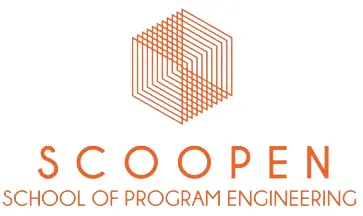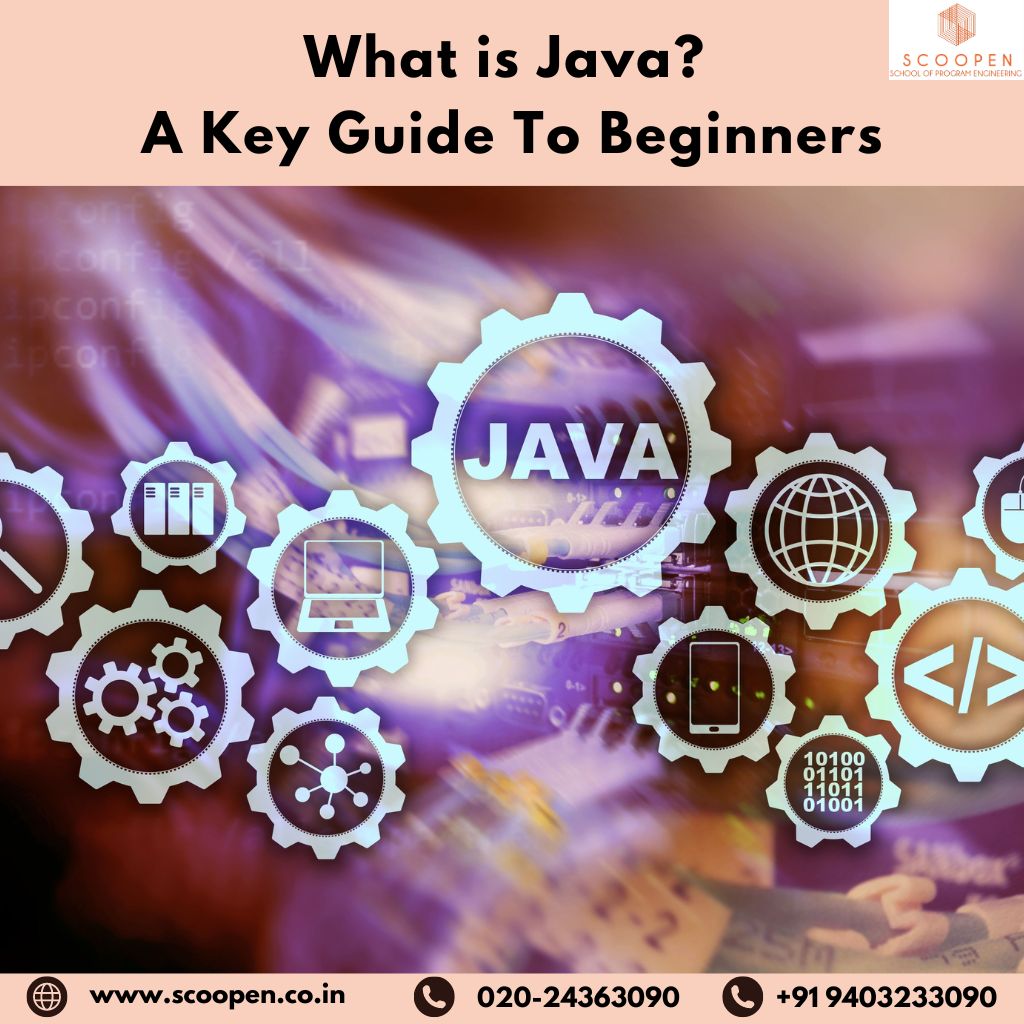Java is a powerful and versatile programming language that has been a cornerstone in the tech world for many years. If you are a Java beginner and you are looking to dive into the world of programming. Understanding of Java is an excellent starting point. In this guide we will explore what Java is and how it is beneficial and essential and how you can get started with Java Classes In Pune. By knowing this you will get a clear understanding about Java.
What is Java?
Java is a high level object oriented programming language developed by Sun Microsystems in the year 1995. It is designed to be platform independent meaning that Java code can run on any device or operating system that has Java Virtual Machine also known as (JVM). Which makes Java a highly flexible and widely used language in various applications from web development to mobile applications.
Java is also known for its simplicity, readability and has a strong memory management. Which makes a preferred choice for many budding developers and organizations. Java follows a simple language like “Write Once, run anywhere” methodology which is a positive advantage in a diverse technical environment.
Why to Learn Java?
Learning Java offers numerous benefits, particularly for beginners:-
Versatility – Java is used in a wide range of applications including web development, mobile applications (Android) and enterprise applications. This versatility means that if you master Java it opens doors to various career opportunities.
Job Market – Due to the current market scenario there is a high demand for skilled Java developers in the field of market. Many companies seek professionals who are efficient and experienced in Java due to its reliability and extensive use in critical applications.
Community and Resources – The Java community is very vast and active. Due to this there are numerous resources, groups dedicated to helping learners and professionals. Due to the strong supporting network it makes it easier to find the required support and continuous learning.
Basic Concepts Of Java
Before getting started with Java, It is very much important to understand some basic concepts:-
Syntax – Java syntax is relatively simple and easy to understand. It uses a structure that is very much similar to other C-Based languages which can be helpful if you have experience with languages like C++ or C#. Basic syntax includes defining variables, data types and using operators.
OOP Principles – Java is an object oriented programming language, which means that it is built around objects and classes. Some of the key features include encapsulation (bundling of data and methods), inheritance (extending of existing classes), and polymorphism (using objects in multiple formats). Understanding these concepts is very important for effective Java programming.
Control Flow – In Java control flow statements help you to manage the execution of code. This includes loops (e.g., for, while) and usage of conditional statements (e.g., if, switch). Mastering of control flow is essential for writing efficient and functional code.
Characteristics of Java
Some of the characteristics of Java are :
Simple and Easy to Learn – Java was designed to be easy to use and understand. Java has a concise syntax with clear conversations, making it easy to understand for beginners.
Independence of Platform – Java programs are compiled into bytecode, which can run on any JVM also known as Java Virtual Machine. This means Java applications are platform-independent, as long as JVM is available for the target platform.
Object Oriented – Java is fully object oriented which means it supports principles like encapsulation, inheritance and polymorphism. This promotes modular and flexible code structures.
Robust and Secure – Java puts a lot of emphasis on early checking for possible errors, as well as runtime checking, which helps ensure robustness. It also includes features like garbage collection to manage the memory efficiently. Java’s security features such as sandboxing and cryptography libraries enhance its robustness.
High Performance – While Java is often considered slower than natively compiled languages like C+ or C++, advancements in JVM implementations and just-in-time compilation have significantly improved Java’s performances.
Dynamic – It is designed to adapt to an evolving environment which supports a dynamic loading of classes, which allows Java Programs to dynamically extend their functionality over a network.
Community Support – Java has a large and active community of web developers, which contributes to its extensive libraries, frameworks and tools. This type of ecosystem supports developers in building a wide range of applications efficiently.
These are some of the characteristics that have contributed to Java’s enduring popularity in various domains, including web development, enterprise software, mobile applications (Android) and more.
Setting Up of Your Java Environment
To start programming in Java, you need to set up your Java environment :
Installation – Begin by installing the Java Development Kit (JDK). The JDK includes everything you need to know to develop Java applications, including the Java compiler and runtime environment. For this you need to download the JDK from the official oracle website or other trusted sources.
Configuration – After installing the JDK, you need to configure your development environment. This includes setting up environment variables and choosing an Integrated Development Environment (IDE). Some of the popular IDE of Java are Eclipse, IntelliJ Data and NetBeans.
First Program – Writing your first Java program is a great way to get started. For this a simple programming can be demonstrated for e.g. “Hello World” which demonstrates the basics of Java Syntax and structure. To make it easier, here is an example in which you can get a better understanding.
public class HelloWorld {
public static void main(String[] args) {
System.out.println(“Hello, World!”);
}
}
Compile and run this program to see the output, and you will be on your way to learn Java.
What Are Resources Required for Learning Java?
If you are looking to master your Java skills, there are several resources available:
Java Course In Pune – Enrolling in a Java Course in Pune is an excellent way to receive structured learning and hands-on experience. Many courses offer practical training which can be ideally beneficial to beginners.
Java Online Course – For those who prefer flexible learning options, a Java Online Course can be a great alternative. Online courses provide the convenience of learning at your own pace while offering comprehensive coverage of Java topics.
Java Course for Beginners – If you are just starting, look for a Java Course for Beginners. These fundamental courses are tailored for those with little or no programming experience, covering foundational concepts and gradually advancing to more advanced topics.
Scoopen offers a range of Java Classes In Pune, that cater the need of different learning needs. Whether you are interested in a comprehensive Java Course In Pune or an online option, we provide high-quality instruction and resources to support your learning journey.
Common Challenges and How to Overcome Them
Beginners often face challenges when learning Java:
Syntax Errors – Syntax Errors are common when starting out. To overcome them, practice regularly and consult resources like documentation and forums for help.
Debugging – Debugging can be tricky, but learning to use debugging tools within your IDE can make the process much easier.
Conceptual Understanding – Understanding object-oriented programming concepts can be challenging. Spend some time studying these principles and concepts and apply them through coding exercises to reinforce your knowledge and understanding.
Conclusion
Java is a versatile programming language that offers numerous opportunities for beginners. Whether you choose to enroll in Java Classes In Pune, take a Java Online Course or start with a Java Course for Beginners, there are plenty of resources available to help you succeed. We provide excellent Java Classes to guide you through your learning process. To know more about or to get started contact us at +91 94032 33090. Embrace the world of Java and unlock your potential in the programming world.
Frequently Asked Questions
What is Java? Why is it important for beginners?
Ans – Java is a popular, high-level programming language known for its simplicity and wide use in web, mobile applications. For beginners it is important because it provides a solid foundation in object oriented programming which is beneficial for understanding modern software development.
How does Java differ from other programming languages?
Ans – Java stands out for its platform independence, which means code written in Java can run on any device with a Java Virtual Machine. Unlike some other languages, Java Syntax is very easy to understand making it a preferred choice for beginners.
Can beginners create real-world applications with Java?
Ans – Yes, Beginners can create real world applications with Java by attending our Java Courses in Pune at Scoopen, which gradually progress in developing desktop applications, Android apps, and web applications as they become more familiar with Java’s extensive libraries and frameworks.
How can a beginner start learning Java efficiently?
Ans – A beginner can start learning Java efficiently by attending Java Online Course and following a structured approach by first learning the basic syntax and concepts, and then practicing by writing simple programs. With the help of Scoopen and consistent practice is a key to mastering Java.
What are the most common challenges beginners face when learning Java?
Ans – Beginners often struggle with understanding object-oriented programming (OOP) concepts like inheritance and polymorphism, Additionally, mastering Java’s syntax and handling of error can be challenging at first. However with consistent practice and guidance with our facilitators at our institute these challenges become manageable over time.
How long does it typically take to learn Java as a beginner?
Ans – The time it takes to learn Java depends on the learner’s pace and dedication. Typically for a beginner he/she can grasp the basics of Java in a few weeks to a couple of months with consistent practice. To become proficient and to build complex applications, it may also take several months to a year.


